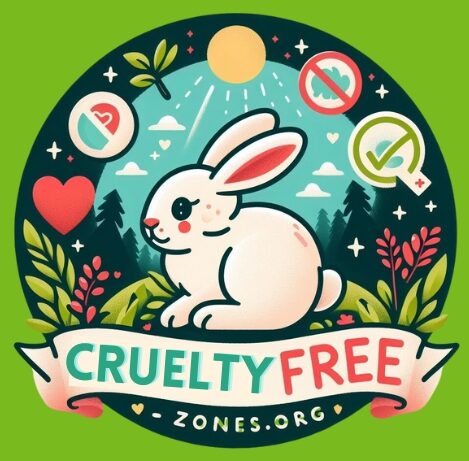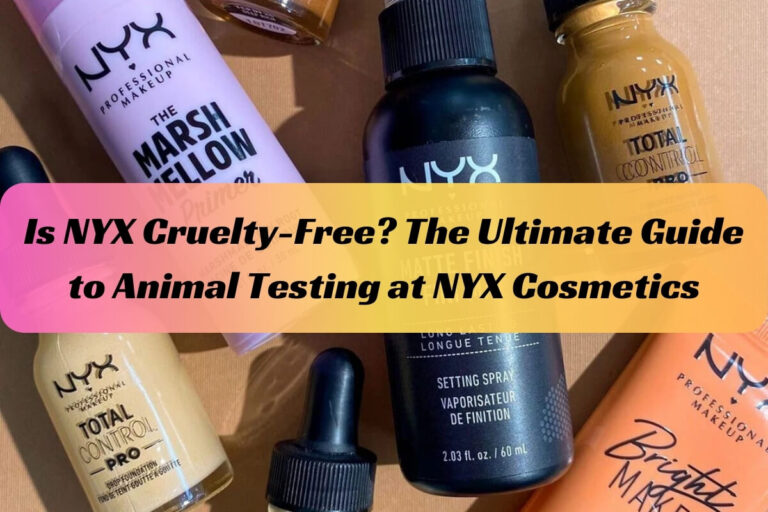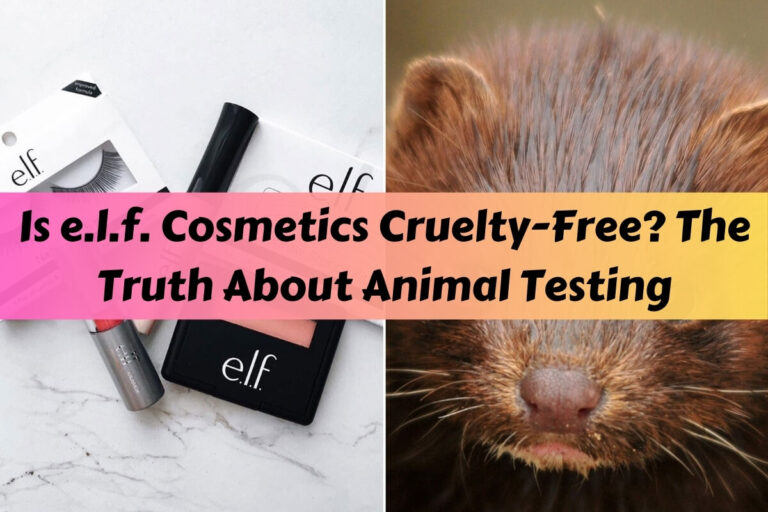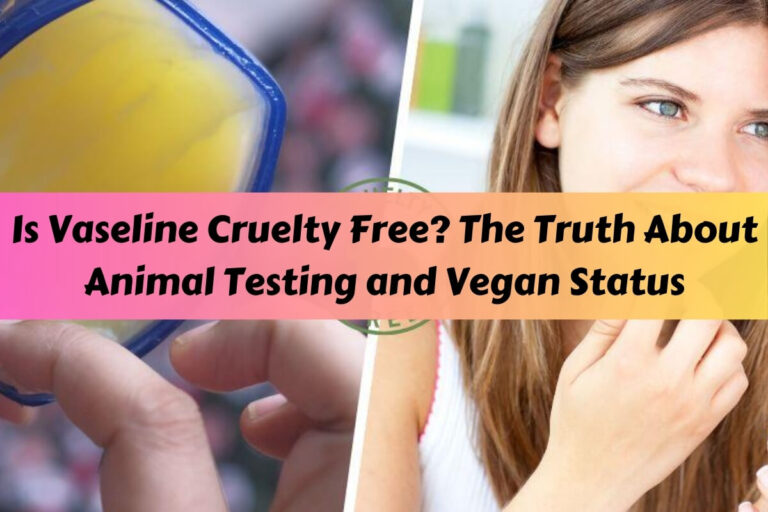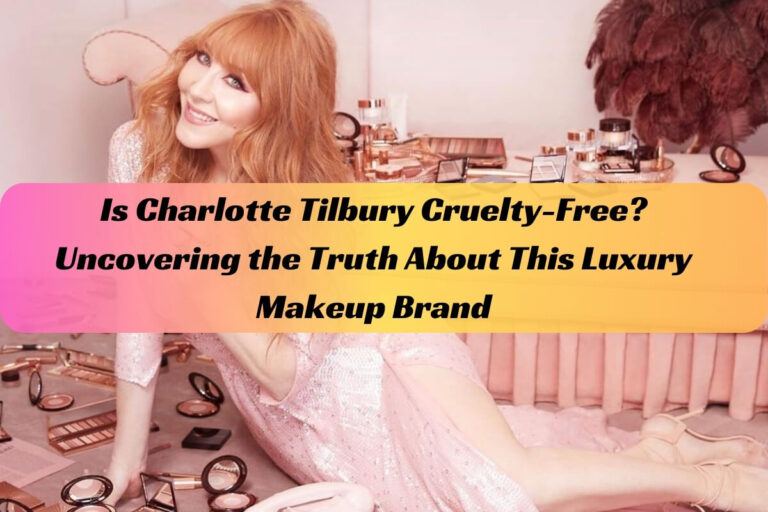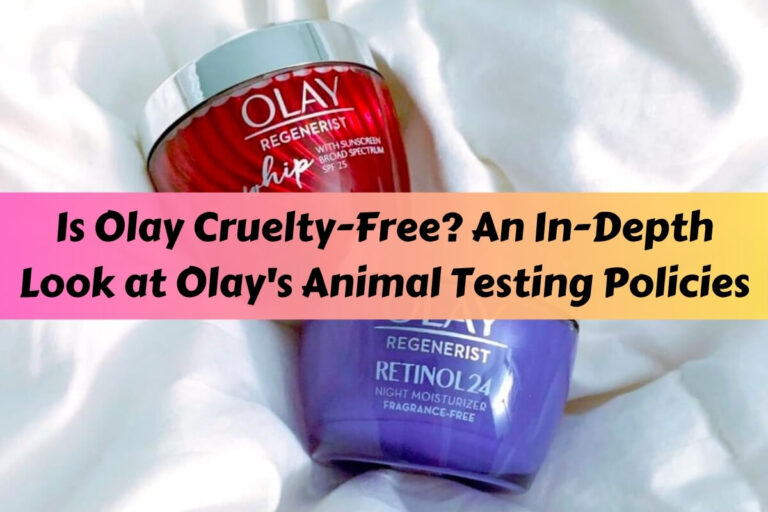Is Garnier Cruelty-Free in 2024? Truth About Garnier’s Animal Testing Policies
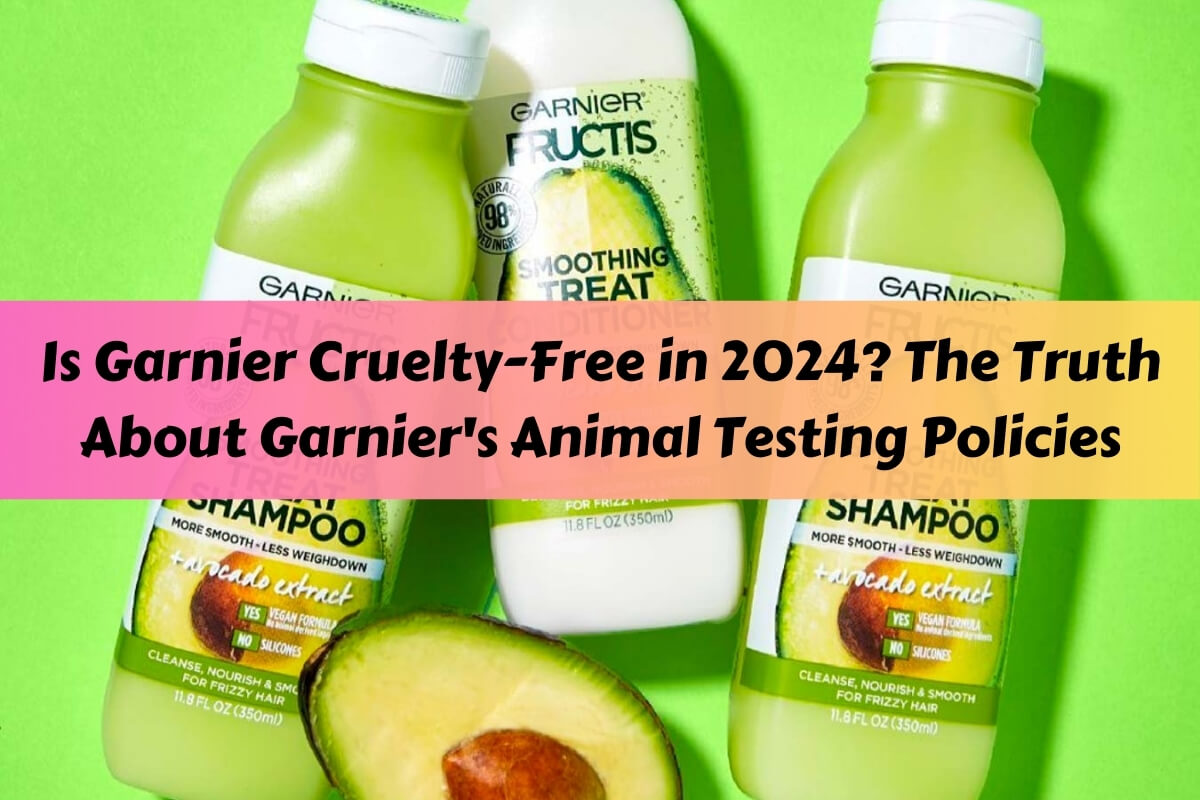
In today’s world, more and more consumers are becoming conscious of the ethical practices behind the products they use, particularly when it comes to animal welfare. The cosmetics industry has long been scrutinized for its controversial history of animal testing, leading to a growing demand for cruelty-free alternatives. As one of the most recognizable and widely available brands in the drugstore aisle, the question of whether Garnier is cruelty-free has been on many people’s minds.
Is Garnier cruelty-free? The short answer is yes, Garnier is officially certified as a cruelty-free brand by reputable organizations like Leaping Bunny (Cruelty-Free International) and PETA.
This post provides details to help you decide if Garnier aligns with your values, whether you’re a regular customer or exploring cruelty-free drugstore options.
What Does It Mean for a Brand to Be Cruelty-Free?
Before diving into Garnier’s specific policies, it’s essential to understand what the term “cruelty-free” means in the cosmetics industry. A cruelty-free brand does not test its finished products or ingredients on animals at any stage of product development. This includes not only the brand’s testing but also testing conducted by third parties or suppliers.
Cruelty-free brands are committed to ethical practices and have policies in place to ensure that no animal suffers in the process of creating their products. This stance against animal cruelty is often driven by moral and ethical considerations, as well as a recognition of the availability of modern, humane alternatives to animal testing.
Garnier’s Cruelty-Free Certifications
To ensure transparency and accountability, many cruelty-free brands seek third-party certifications from organizations that uphold strict standards against animal testing. Garnier has received certifications from two of the most reputable and widely recognized organizations in this realm.
Leaping Bunny (Cruelty-Free International)
Garnier is officially approved by Cruelty-Free International under the Leaping Bunny Program, which is considered the gold standard for cruelty-free products. To achieve this certification, Garnier underwent a rigorous approval process that involved:
- Agreeing to a fixed cut-off date for animal testing
- Investigating their entire supply chain for any cases of animal testing
- Implementing a supplier monitoring system
- Undergoing independent audits
Cruelty-Free International’s CEO, Michelle Thew, praised Garnier’s diligence in reviewing every supplier and source, stating that they are “completely confident with the results.”
PETA Certification
In addition to the Leaping Bunny certification, Garnier is also certified as cruelty-free by PETA (People for the Ethical Treatment of Animals), another well-known organization advocating for animal rights.
Does Garnier Test on Animals?
Garnier has clearly and unequivocally stated that they do not test their finished products or ingredients on animals, nor do they allow third parties or suppliers to conduct animal testing on their behalf. This commitment extends to not testing on animals even when required by law in certain markets.
In Garnier’s own words, as stated on their website:
“Garnier has been committed to a world without animal testing since 1989. The brand is now officially approved by Cruelty Free International under the Leaping Bunny Programme and adheres to all their rigorous requirements.”
This strong stance against animal testing is a cornerstone of Garnier’s ethical practices and aligns with the values of conscientious consumers who prioritize cruelty-free products.
Garnier’s Official Animal Testing Policy
To further emphasize their commitment, Garnier has an official animal testing policy that states:
- They do not test their products or ingredients on animals.
- They do not ask others to test on their behalf.
- Their ingredient suppliers do not test on animals.
- They do not allow or sell their products under conditions where animal testing is required by law.
By meeting these strict criteria, Garnier has been able to earn the coveted Leaping Bunny certification, solidifying their status as a cruelty-free brand.
Is Garnier Sold in China?
One of the most significant considerations when evaluating a brand’s cruelty-free status is whether it sells its products in mainland China. This is because China has historically required animal testing for most cosmetics sold in physical stores, although there have been recent changes to these laws.
Garnier has confirmed that they do not sell their products in retail stores in mainland China, effectively avoiding the risk of post-market animal testing requirements. This decision further aligns with their cruelty-free principles and demonstrates their commitment to upholding ethical practices globally.
The Parent Company Question: L’Oréal and Animal Testing
While Garnier itself is a cruelty-free brand, it’s important to note that the company is owned by L’Oréal, a larger corporation that is not entirely cruelty-free. L’Oréal allows some of its other brands to engage in animal testing practices where required by law.
This information may be a deciding factor for some consumers who prefer to avoid brands owned by parent companies that are not wholly cruelty-free. However, others may choose to support Garnier as a cruelty-free option, potentially influencing the parent company’s practices through consumer demand.
Buying from Garnier or similar brands with non-cruelty-free parents is a personal choice based on individual values.
Garnier’s Vegan Product Options
In addition to being cruelty-free, many consumers are also interested in vegan cosmetics, which are formulated without any animal-derived ingredients. While Garnier is not an entirely vegan brand, they do offer a range of vegan product options.
Some of Garnier’s popular vegan products include:
- Fructis Plumping Treat Shampoo Watermelon for Fine Hair
- Green Labs Canna-B Pore Perfecting Serum Cream – SPF 30
- SkinActive Micellar Cleansing Water with Vitamin C
- Green Labs Hyalu-Melon Smoothing Milky Washable Cleanser
- Fructis Pure Clean Detangler + Air Dry
Garnier clearly labels their vegan products with a “Vegan Formula” logo or stamp on the packaging, making it easier for consumers to identify and choose these options.
Garnier’s Sustainability and Ethical Initiatives
Beyond their commitment to being cruelty-free, Garnier has also taken steps towards becoming a more sustainable and environmentally conscious brand. Their “Green Beauty” initiative encompasses a range of efforts aimed at reducing their environmental impact throughout the product lifecycle.
Some key aspects of Garnier’s sustainability efforts include:
- Developing products that require less water usage by 2030
- Aiming to use 100% recycled materials for plastic packaging by 2025
- Achieving carbon neutrality in global plants and distribution centers by 2025
- Promoting sustainable sourcing practices for ingredients
These initiatives demonstrate Garnier’s dedication to not just animal welfare but also environmental responsibility, aligning with the values of conscious consumers who prioritize ethical and sustainable practices.
Is Garnier Considered a “Clean” Beauty Brand?
The term “clean beauty” has gained traction in recent years, referring to products formulated without potentially harmful or controversial ingredients. However, it’s important to note that the term “clean” is not regulated, and brands can use it somewhat loosely in their marketing claims.
While Garnier is undoubtedly a cruelty-free brand, it may still use certain harsh chemicals or ingredients that some consumers consider undesirable in “clean” beauty products. It’s essential to review the ingredient lists and make an informed decision based on your personal preferences and values.
“Cruelty-free”, “vegan”, and “clean” have different meanings, and a brand can be one without being the others.
Garnier’s Mica Sourcing Policies
One area of ethical concern in the cosmetics industry is the sourcing of mica, a mineral used to add a shimmery effect to products. Unethical mica mining practices have been linked to child labor and human rights violations, making it crucial for brands to ensure their mica is ethically sourced.
When asked about their mica sourcing policies, Garnier directed consumers to L’Oréal’s sustainable procurement policy, which outlines their commitment to ethical and sustainable sourcing practices. While a specific statement on mica mining was not provided, this policy suggests that Garnier and its parent company prioritize responsible sourcing methods across their supply chain.
Where to Buy Cruelty-Free Garnier Products
One of the advantages of Garnier being a cruelty-free brand is its widespread availability. Garnier products can be found at numerous retailers, both online and in physical stores, making them accessible to consumers across the globe. Some of the major retailers that carry Garnier products include:
- Ulta
- Target
- Amazon
- Walmart
- CVS
- Drugstores and grocery stores worldwide
With such a vast distribution network, Garnier’s cruelty-free status opens up more options for conscious consumers seeking ethical and accessible beauty products.
Garnier has earned cruelty-free certifications, but it’s crucial to research brand policies when shopping for ethical products. Here are tips for identifying cruelty-free brands:
- Look for third-party certifications: Organizations like Leaping Bunny (Cruelty-Free International) and PETA provide cruelty-free certifications to brands that meet their strict criteria. These certifications offer a reliable way to identify brands committed to animal welfare.
- Check brand websites and policies: Reputable brands will often have clear statements about their animal testing policies and cruelty-free commitments on their websites or product packaging.
- Utilize cruelty-free resources and databases: There are various online resources and databases, such as Cruelty-Free Kitty and Logical Harmony, that maintain up-to-date lists of cruelty-free brands, making it easier for consumers to make informed choices.
- Stay informed about changes in laws and regulations: Animal testing laws and requirements can vary across different countries and regions, so it’s crucial to stay informed about any changes that may impact a brand’s cruelty-free status.
By exercising due diligence and staying informed, consumers can make ethical choices that align with their values and contribute to the growing demand for cruelty-free products.
Conclusion
In conclusion, Garnier is officially certified as a cruelty-free brand by reputable organizations like Leaping Bunny and PETA. The brand has taken significant steps to ensure that no animal testing occurs throughout its supply chain and product development process, earning the trust of conscientious consumers.
Garnier, despite its parent company’s policies, prioritizes animal welfare and offers vegan options. It also works to reduce its environmental impact.
Ultimately, the decision to purchase from Garnier or any other cruelty-free brand is a personal choice based on individual values and preferences. However, by supporting cruelty-free brands like Garnier, consumers can contribute to the growing demand for ethical practices in the cosmetics industry and potentially influence parent companies to adopt more animal-friendly policies.
